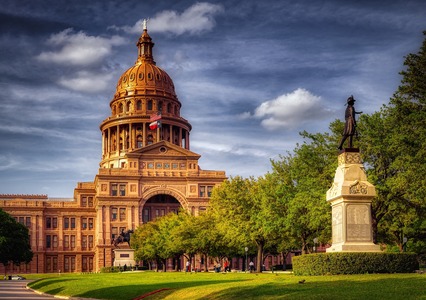100 signatures reached
To: Dear Texas Representatives Moody, Cook, Bhojani, Bowers, Darby, Harrison, Leach, Morales, and Schatzline,
URGENT! Prevent Texas from providing immunity to officers who cause harm with less-lethal weapons.

We are registered voters and citizens dedicated to social justice. We want to express our strong belief that SB2593 is not in the best interest of Texas communities and that providing officers any form of immunity for use of less-lethal weapons would impede justice.
Less-lethal weapons were once termed non-lethal weapons, and that term was eliminated because of the overwhelming evidence that these weapons can indeed be lethal. Even when they are not lethal, less-lethal weapons can cause substantial physical and emotional suffering that can be debilitating and lifelong.
Less-lethal weapons have been publicized in recent years for their use against protesters for crowd control. But they are often used in close-contact situations when people show “passive resistance” by not responding quickly or fully to commands due to their mental impairment, presumed intoxication, or atypical/unexpected reactions during interactions with officers.
The inability for officers to confirm the absence of weapons should not justify the use of less-lethal weapons. Many unarmed people are wounded significantly by less-lethal weapons, and they should maintain the right to hold officers accountable for their injuries and suffering when officer use of force is unwarranted and/or violates their civil rights.
SB 2593 would proliferate injustice by prohibiting Texans from seeking justice when less-lethal weapons cause tragic consequences. Protecting and serving the community should require officers to consider the potential physical and emotional harm their actions could cause. Physical wounds from less-lethal weapons are visible, expected, and potentially lethal. The emotional and social harms caused by the traumatic experience of being the victim of less-lethal weapons are less visible, but potentially more painful and enduring.
We believe this bill is unlikely to discourage use of lethal weapons and instead is likely to promote unwarranted use of less-lethal weapons in situations where risk for potential harm is ambiguous. Evidence also indicates that less-lethal weapons are more likely to be used against people of color, people in marginalized communities, and people who are neurodiverse, struggling with mental illness, cognitively impaired, or presumed intoxicated.
Less-lethal weapons were once termed non-lethal weapons, and that term was eliminated because of the overwhelming evidence that these weapons can indeed be lethal. Even when they are not lethal, less-lethal weapons can cause substantial physical and emotional suffering that can be debilitating and lifelong.
Less-lethal weapons have been publicized in recent years for their use against protesters for crowd control. But they are often used in close-contact situations when people show “passive resistance” by not responding quickly or fully to commands due to their mental impairment, presumed intoxication, or atypical/unexpected reactions during interactions with officers.
The inability for officers to confirm the absence of weapons should not justify the use of less-lethal weapons. Many unarmed people are wounded significantly by less-lethal weapons, and they should maintain the right to hold officers accountable for their injuries and suffering when officer use of force is unwarranted and/or violates their civil rights.
SB 2593 would proliferate injustice by prohibiting Texans from seeking justice when less-lethal weapons cause tragic consequences. Protecting and serving the community should require officers to consider the potential physical and emotional harm their actions could cause. Physical wounds from less-lethal weapons are visible, expected, and potentially lethal. The emotional and social harms caused by the traumatic experience of being the victim of less-lethal weapons are less visible, but potentially more painful and enduring.
We believe this bill is unlikely to discourage use of lethal weapons and instead is likely to promote unwarranted use of less-lethal weapons in situations where risk for potential harm is ambiguous. Evidence also indicates that less-lethal weapons are more likely to be used against people of color, people in marginalized communities, and people who are neurodiverse, struggling with mental illness, cognitively impaired, or presumed intoxicated.
Why is this important?
SB2593 would not improve community safety, it would disproportionately harm marginalized and vulnerable people and destroy Texas families.
In the interest of justice and community safety, the undersigned Texans call on the Texas House of Representatives and the Committee on Criminal Jurisprudence in particular to BLOCK SB2593 from advancing toward law.
In the interest of justice and community safety, the undersigned Texans call on the Texas House of Representatives and the Committee on Criminal Jurisprudence in particular to BLOCK SB2593 from advancing toward law.
How it will be delivered
To maximize the impact of your opposition, contact the Texas Representatives on the Criminal Jurisprudence Committee.
More information, tips for opposing this bill, contact information for Representatives, and maps to Capitol offices can be found at the link below.
